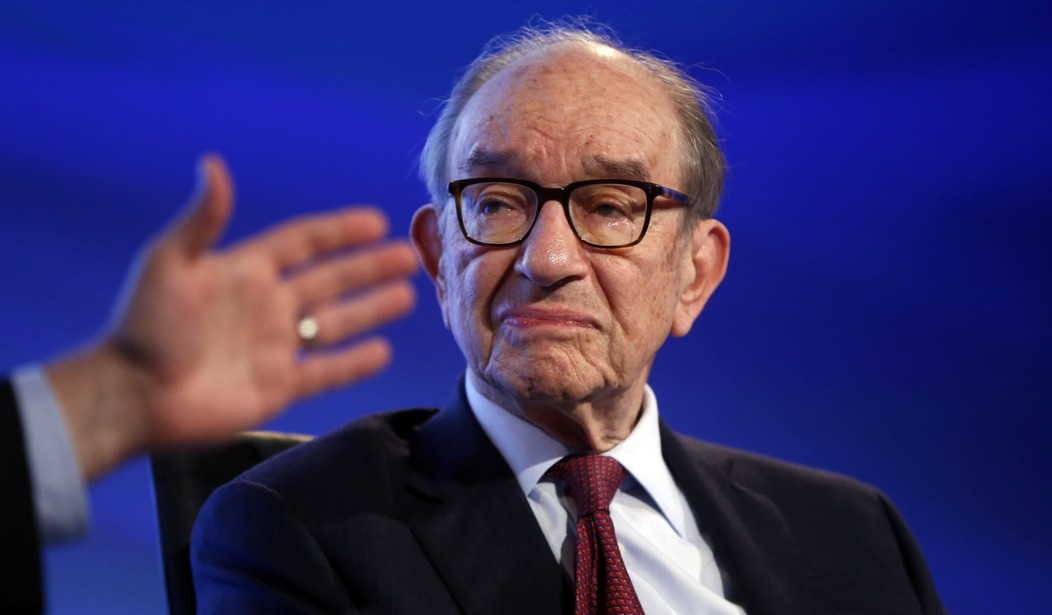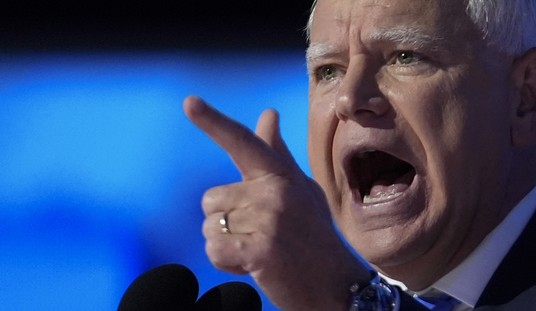WASHINGTON – Former Federal Reserve Chairman Alan Greenspan said the Trump administration and the Republican-led Congress made the right move by lowering the corporate tax rate.
“I’d argue that there’s both a stock bubble and an interest rate bubble — bond market bubble, I should say, at the time – and the bond market bubble is essentially the determining force because to reach equilibrium, it’s got to move, whereas all other aspects have a lot of fluctuation. It is at its low— real interest rates are at their lowest levels of extremity and, by the definition, if you’re at your lowest levels, there’s only one direction you can go,” Greenspan said during a recent discussion at the American Enterprise Institute titled, “The Bubble Economy – Is This Time Different?”
“But if that goes up, then it tends to alter the earnings-price ratio and would bring stock prices down, and that’s what’s happening,” he added. “I’m not going to go out there and be a stock market forecaster. But I know what the forces are, and it’s a question here of trying to determine which is the driving force.”
Greenspan, who was nominated by President Reagan in 1987 and served until 2006, said the U.S. stock market is being “driven” by the corporate tax rate reduction that was a central part of the GOP tax reform plan. President Trump signed the bill into law on Dec. 22.
“Remember that the stock market is being driven to a large extent by the one thing that I think the Trump administration did right: got the 35 percent marginal corporate tax rate and brought it down to 21 percent. I think that probably caused everyone watching Ireland. Ireland did exactly the same thing in 1998, and it had been a pretty dull economy before then,” Greenspan said.
“And immediately thereafter, for, you know, five years or more, its productivity increased more than 5 percent per year. Now, it’s an extraordinary change, and I think that what is happening here in the United States is we’re underestimating the impact of that because, remember, going back to my pre-Fed period when I used to be on a lot of boards, I would sit there and watch them go through the valuation of a particular project to get board approval,” he added.
Greenspan continued, “And at the very end of the cycle was, this is our pre-tax forecast, this is our after-tax forecast and all you have to do is move the tax rate several percentage points, and a whole cascade of projects will fall on a ‘let’s-do-it’ type relationship, and I think that’s what’s happening at the moment.”
Greenspan was asked how much trust the American people should place in U.S. financial institutions and the dollar at the present time.
“Depends on human nature. Obviously, trust is a critical aspect of finance. You couldn’t have any complex society where there’s – people are willing to trust somebody over a protracted period. I mean, we sell 30-year Treasury bonds. People are willing to hold it,” he replied.
“Well, why? Because they believe that even though they’re getting back fiat currency, they will get their currency back and so that you take trust out of a financial system and it collapses because it’s all based on interpersonal reactions,” he added.









Join the conversation as a VIP Member